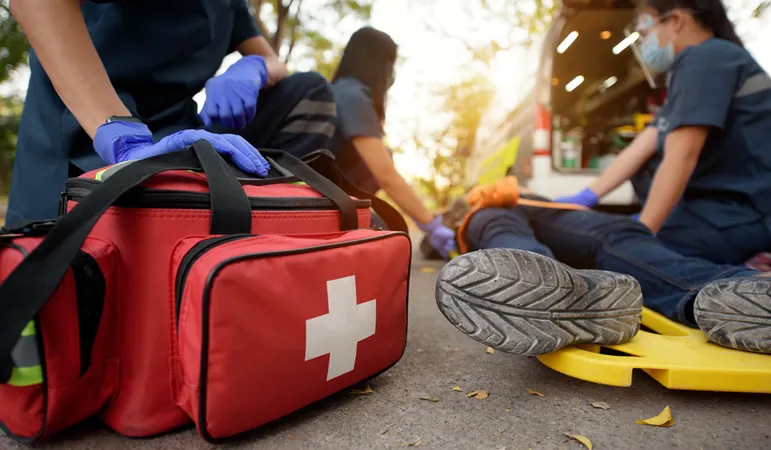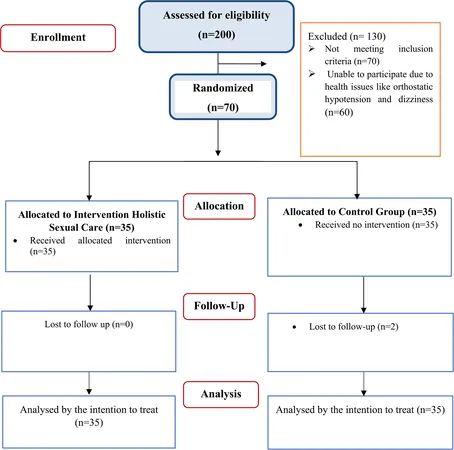
Life-Saving Potential: Why Physician-Paramedic Teams Could Transform Emergency Care in Canada!
2025-01-13
Author: Olivia
Introduction
In the critical moments of a medical emergency, the difference between life and death often hinges on how quickly the patient receives care. Research indicates that the combination of on-scene support and efficient hospital transport is vital for patient survival.
The UBC Study
A groundbreaking study from the University of British Columbia (UBC) reveals that physician-paramedic collaboration in pre-hospital care could significantly enhance patient outcomes, particularly for those in rural and remote regions of British Columbia and Canada.
The analysis showcases that jurisdictions integrating these interprofessional teams report a staggering 49% increase in survival rates and a 20% reduction in mortality risk. This is especially crucial for remote areas, where travel times to healthcare facilities can stretch from hours to even days due to adverse weather conditions.
Expert Insights
Dr. Mike Christian, the study's senior author and a clinical professor of critical care medicine at UBC, emphasizes the importance of this approach. “In rural areas, pre-hospital care is often a race against time. Our findings advocate for a shift towards interprofessional, team-based pre-hospital care – a model that has proved successful globally.”
Collaborative Care Framework
In such a collaborative care framework, physicians and paramedics would jointly address medical emergencies at the scene and facilitate swift transport based on individual patient needs. This proactive model allows for advanced medical interventions before the patient even arrives at the hospital, ensuring that they receive the best possible care right from the start.
Current Landscape in Canada
While the implementation of physician-paramedic teams is not widespread in Canada, there are successful examples both domestically and internationally. Countries like Australia, the UK, Scandinavia, and Japan have long adopted these integrated approaches. In British Columbia, local organizations like North Shore Rescue and Kootenay Emergency Response Physicians Association (KERPA) are already demonstrating the benefits of such systems, operating within certain limits while collaborating with emergency health services.
Research and Observations
The study conducted by Dr. Christian along with UBC medical students Matthew Lavery and Arshbir Aulakh involved a comprehensive review of international research, establishing the compelling case for interprofessional teams in emergency care.
According to Lavery, this experience has changed his perspective on emergency medicine. “I’m motivated to contribute to the evolution of pre-hospital care systems to improve outcomes for patients,” he stated. Both Lavery and Aulakh's testimonies underline the increasing recognition of the vital roles both physicians and paramedics can play in emergency situations, particularly in underserved communities.
Potential for Implementation
The implications of such findings could lead to province-wide initiatives to introduce physician-led teams tailored to the unique needs of various regions. In bustling cities like London, England, a mere three teams manage a population of around 10 million, suggesting that British Columbia may benefit from implementing between six to twelve teams to blanket its vast areas effectively.
Workforce Sustainability
Moreover, Dr. Christian raises a crucial point regarding workforce sustainability in remote regions. By implementing these interprofessional teams, provinces could not only enhance the quality of care but also create a more supportive work environment for healthcare professionals, counteracting the high turnover rates often observed in isolated settings.
“Many healthcare workers leave rural positions due to the moral toll of inadequate patient outcomes. Interprofessional pre-hospital teams could provide the support and resources necessary to foster retention,” he noted.
Conclusion
In conclusion, the integration of physician-paramedic teams could revolutionize emergency care in Canada, particularly in remote communities. As this study urges a rethinking of current pre-hospital systems, the question remains: how quickly can Canada adopt these life-saving strategies to ensure that every second truly counts?









 Brasil (PT)
Brasil (PT)
 Canada (EN)
Canada (EN)
 Chile (ES)
Chile (ES)
 Česko (CS)
Česko (CS)
 대한민국 (KO)
대한민국 (KO)
 España (ES)
España (ES)
 France (FR)
France (FR)
 Hong Kong (EN)
Hong Kong (EN)
 Italia (IT)
Italia (IT)
 日本 (JA)
日本 (JA)
 Magyarország (HU)
Magyarország (HU)
 Norge (NO)
Norge (NO)
 Polska (PL)
Polska (PL)
 Schweiz (DE)
Schweiz (DE)
 Singapore (EN)
Singapore (EN)
 Sverige (SV)
Sverige (SV)
 Suomi (FI)
Suomi (FI)
 Türkiye (TR)
Türkiye (TR)
 الإمارات العربية المتحدة (AR)
الإمارات العربية المتحدة (AR)